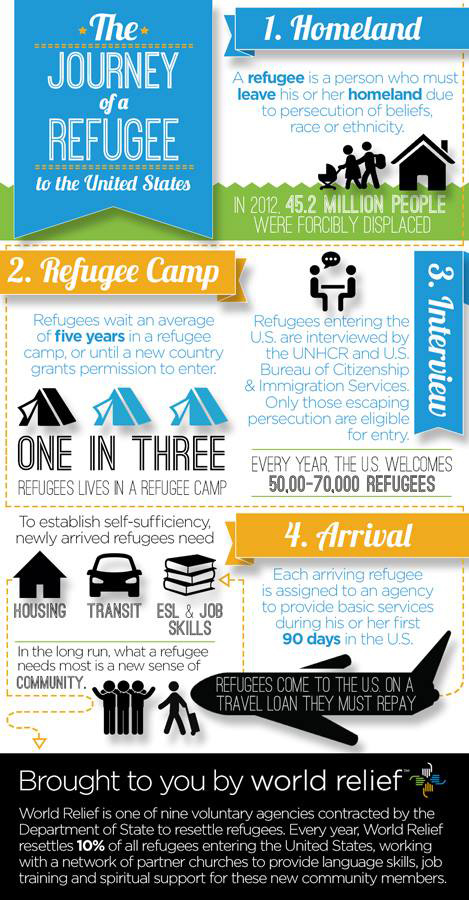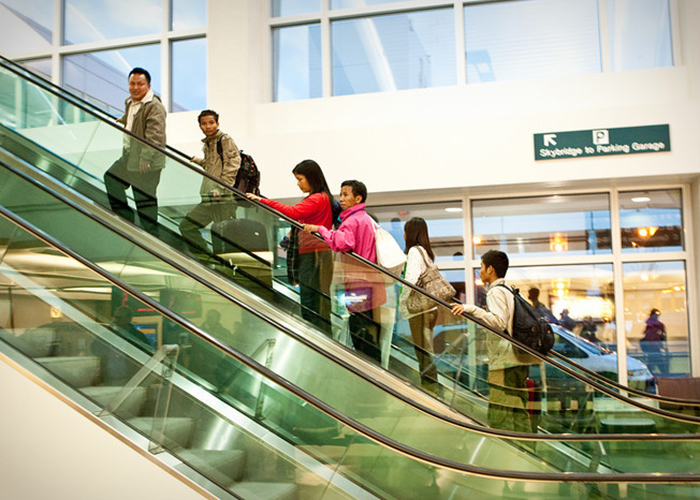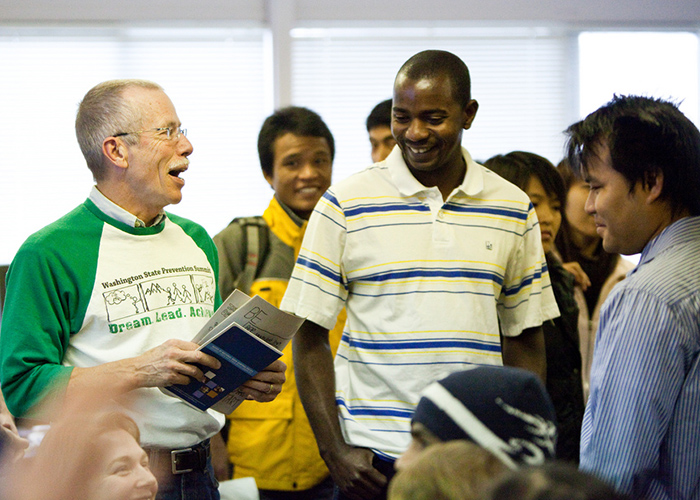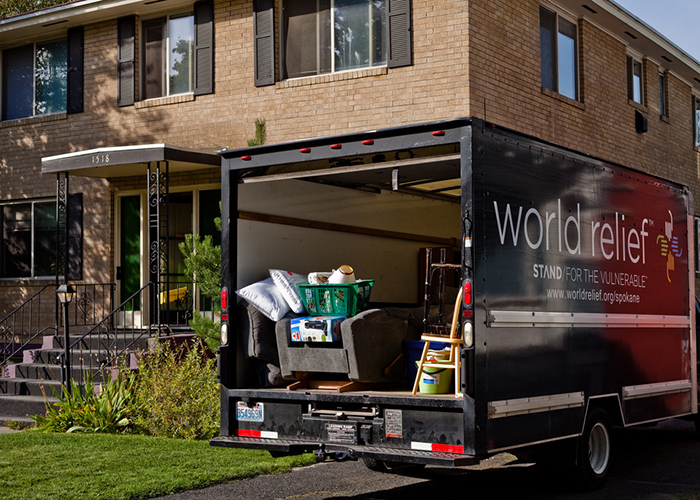Learning the Cultural Ropes
Posted on October 1, 2014 at 6:00 am
By Gwendolyn Haley
Many years ago, my husband Greg and I lived in China for 18 months. While it was an exciting adventure, at times it was incredibly lonely to be surrounded by a strange (to us) culture, and people speaking a language we didn’t understand. I remember walking through an outdoor food market and feeling a wave of homesickness as I was confronted by unfamiliar sights, sounds, and smells at every turn. I started to cry and left without buying anything. Over time we learned to speak the language and navigate the market, and other places. We made friends, and Yangzhou began to feel like home. Even so, always at the back of my mind was the promise that we would be returning to Spokane in a few months.
I think that the experience of being a stranger in a strange land is what led our family to begin volunteering with local refugee organizations. Who is a refugee? Refugees are people who have been forced to leave their home country and who are unable to return because they are at risk for persecution due to race, nationality, religion or membership in a political social group or political opinion.
For a refugee family arriving in Spokane, the first few weeks are a whirlwind. Refugees arrive with limited personal possessions. Their language, skills and backgrounds are widely varied—from zero English and education to highly skilled and fluent in English. World Relief assists with the initial resettlement establishing housing, basic needs, and enrollment in English classes. Volunteers (like those serving on Good Neighbor teams) help by collecting basic household items to help get the family set up in their new home.
Our Congolese friends arrived last December in the middle of the night. I stayed home to set up beds while Greg and other volunteers met them at the airport with warm winter coats (December in Spokane bears no resemblance to the Congo). The mother and oldest child went directly to the hospital, as the oldest required medical evaluation. The father and son came first to our home, as their new home would not be ready until morning. Since they had been travelling for over 30 hours, we offered them something to eat. The father later told Greg that it felt strange to have a man serve food to him. The little boy sat at our table and watched, wide eyed, as I peeled an orange for him. I’m pretty sure that I was the oddity—not the orange. While we couldn’t say much, we communicated what we could with smiles.
The next day, the family moved into their home, and over the next few weeks we began to get to know them. Greg tried to visit at least once a week, sometimes taking our children with him. Other volunteers from the Good Neighbor team did the same. Having friends visit regularly to answer questions and help navigate things like going to the grocery store, learning to use the bus system, enrolling kids in school, and packing lunches is a huge help. Things that we take for granted everyday are new and can be overwhelming and confusing. We’ve learned where to go if you need to pay your utility bill in person. One couple that volunteered with us is particularly good at making any visit feel like a party. They brought games to play, like Uno, and spent time interacting. Sharing meals together was a simple way to connect, and our Congolese friends liked to have us join them.
Spokane welcomes hundreds of refugees each year. World Relief, Global Neighborhood, and Refugee Connections all provide opportunities to get involved. Anyone can find something to offer a refugee family. Some people really get excited about helping teach English, while some may gravitate toward the more practical side of things, navigating systems and physical needs.
Over the last few years, we have been privileged to make friends with 3 different families. While each came here from a different homeland, we have been able to build bridges between our families and between our cultures. We have watched families improve their language skills, find employment, and navigate Spokane like they’ve been here forever. We have celebrated weddings, births, and children graduating high school. We have stood witness to people rebuilding their lives after leaving everything they knew and loved behind in their former homeland. And we have gained lifelong friends.





